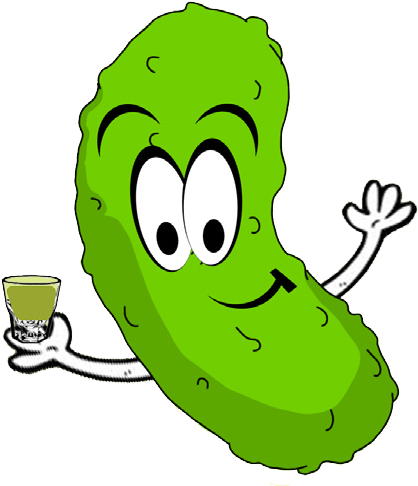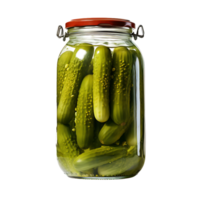Pickle Juice: The Surprising Health Benefits and Risks of Drinking It


Pickle juice has gained popularity as more people discover its potential health benefits, from aiding hydration to soothing muscle cramps. Made from water, vinegar, cucumbers, and spices, pickle juice was once just a byproduct of pickling but has now emerged as a trendy drink. Let’s dive into what pickle juice offers, its nutritional value, and how it may benefit or impact your health.
What is Pickle Juice?
Pickle juice is the liquid used to pickle cucumbers. It typically consists of water, vinegar, salt, and spices. In addition to its flavour, pickle juice has a significant sodium content, which can be beneficial or potentially problematic, depending on individual health needs.
- Origins of Pickling: Pickling dates back to 2030 B.C., when cucumbers were preserved in brine by Indian travellers in the Tigris Valley.
- Pickling Process: Pickling cucumbers requires cucumbers, salt, and water. Natural bacteria on cucumber skins can help ferment them, though commercial pickles often replace beneficial bacteria with vinegar.

Nutritional Profile of Pickle Juice
Per 3.5 ounces (100ml), pickle juice contains:
- Carbohydrates: 0.4 grams
- Calcium: 1–5% of recommended daily intake (RDI)
- Sodium: 50–115% of RDI (varies by brand)
- Potassium: 3% of RDI
- Magnesium: 3% of RDI Some unpasteurised pickle juice may also contain probiotic bacteria, contributing to gut health.
Health Benefits of Drinking Pickle Juice
- Relieves Muscle Cramps
- Research published in Medicine & Science in Sports & Exercise suggests that dehydrated individuals experienced faster relief from muscle cramps after consuming about 1/3 cup of pickle juice, likely due to vinegar’s role in inhibiting cramp-causing nerve signals.
- Quick Fact: Pickle juice provided better relief than water or no fluids at all.
- Enhances Hydration
- Sodium and potassium are key electrolytes lost during intense exercise, particularly in hot climates. Pickle juice’s high sodium content helps replenish these electrolytes, making it ideal after prolonged workouts.
- Tip: If your workout lasts more than an hour, pickle juice may help you rehydrate faster.
- Fat-Free Recovery Drink
- Unlike high-calorie sports drinks, pickle juice has little to no fat and varying calorie levels (0-100 per cup), depending on the pickling solution. This makes it a good option for electrolyte replacement without adding calories.
- Rich in Antioxidants
- Pickle juice contains vitamins C and E, both powerful antioxidants that protect cells from damage by free radicals. This can support immune function and overall health.
- Did You Know?: Antioxidants also help protect against chronic diseases like cancer and heart disease.
- Supports Weight Loss
- Vinegar in pickle juice has been associated with weight loss, as reported in Bioscience, Biotechnology, and Biochemistry. Study participants consuming vinegar daily lost more weight over 12 weeks than those who did not.
- Helps Control Blood Sugar Levels
- According to a study in the Journal of Diabetes Research, vinegar consumption before meals can help stabilize blood sugar levels in people with type 2 diabetes, potentially preventing spikes in glucose levels after eating.
- Promotes Gut Health
- Vinegar is a fermented food that promotes a healthy balance of bacteria in the gut. Consuming pickle juice can support digestive health and may improve nutrient absorption.
- Contains Disease-Fighting Antioxidants
- Since pickles are fermented, they offer essential vitamins, minerals, and antioxidants. These antioxidants protect cells from damage caused by free radicals, potentially reducing the risk of chronic diseases.
- Freshens Breath
- With antimicrobial properties, pickle juice can help reduce mouth bacteria, potentially refreshing your breath.
Risks and Side Effects of Drinking Pickle Juice
While pickle juice offers health benefits, it may not be suitable for everyone. Here are some considerations:
- High Sodium Content: Pickle juice’s sodium can cause water retention, bloating, and high blood pressure in sensitive individuals. Drinking it in moderation is key.
- Indigestion: The acidity of pickle juice can lead to gas, stomach pain, or diarrhoea if consumed in large quantities.
- Electrolyte Imbalance: Drinking excessive pickle juice might disrupt electrolyte levels, potentially worsening cramping or causing further imbalance.
Fluoroquinolones and Pickle Juice: Special Considerations
- The use of antibiotics, particularly fluoroquinolones, can impact digestive health by disrupting the natural balance of gut bacteria. Since pickle juice may contain beneficial probiotics (if unpasteurised), it can be helpful to those recovering from antibiotic treatments. However, consult a healthcare provider if you have a history of medication interactions.
UK and US Warnings on Pickle Juice
- Due to high sodium levels and its acidity, healthcare providers in both the US and UK caution certain populations, like those with high blood pressure or chronic kidney disease, to limit pickle juice intake. Although it can aid in hydration and cramp relief, high salt intake may counteract these benefits for some.
Safe Use of Pickle Juice for Health Benefits
To safely enjoy pickle juice, consider these guidelines:
- Use Moderation: Limit intake to a few ounces per day to avoid overloading sodium.
- Choose Natural Options: Opt for unpasteurised pickle juice for probiotics and avoid added sugars or artificial preservatives.
- Stay Hydrated: Don’t rely solely on pickle juice for hydration; drink water regularly as well.
- Pair with a Balanced Diet: Include other electrolyte sources, like bananas and leafy greens, to ensure a balanced nutrient intake.
Practical Tips for Including Pickle Juice in Your Diet
If you’re interested in trying pickle juice, here are some ways to incorporate it:
- As a Post-Workout Drink: Sip a small amount after intense exercise to restore electrolyte balance.
- Add to Smoothies: Mix pickle juice with a green smoothie for an extra electrolyte boost.
- Use as a Salad Dressing Base: Combine with olive oil for a tangy, low-calorie dressing.
- Marinate Meats and Vegetables: The vinegar in pickle juice tenderizes meat and adds flavour to grilled veggies.
Summary
- Pickle juice, rich in electrolytes and antioxidants, offers several potential health benefits, from soothing muscle cramps to aiding hydration and promoting gut health. Its high sodium and vinegar content makes it a useful recovery drink for athletes and an effective remedy for muscle cramps. However, due to its high sodium level, pickle juice should be consumed in moderation, especially by those with hypertension or kidney issues.
- With its numerous health benefits, pickle juice has earned its place as more than just a byproduct of pickling. Incorporating it into a balanced diet can offer unique advantages, especially after workouts. Just remember that moderation is key to fully enjoying the potential benefits of this tangy, nutrient-rich drink.

 Log in
Log in Sign up
Sign up